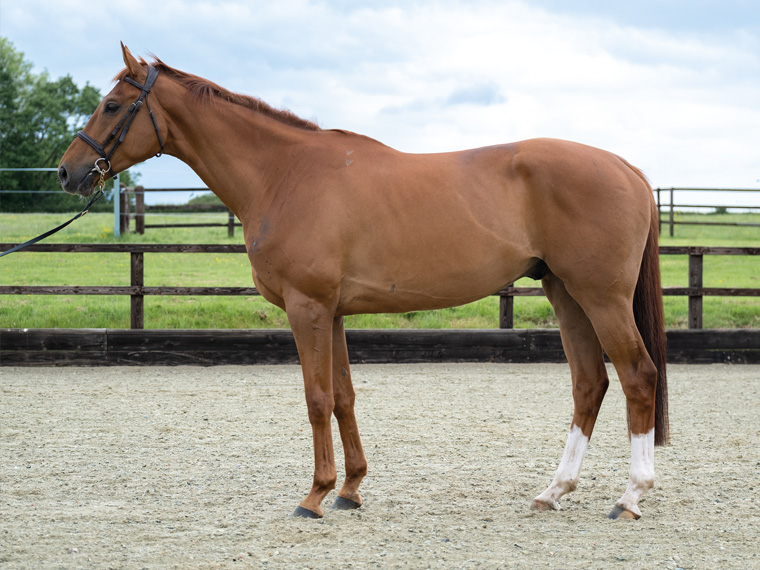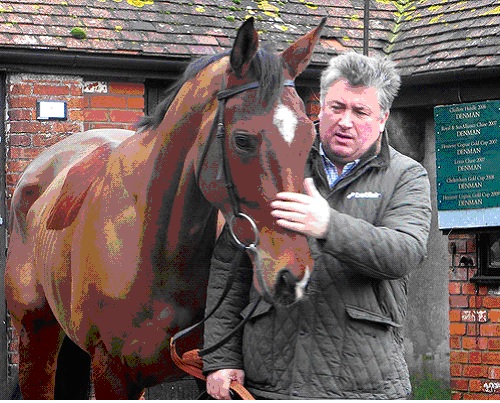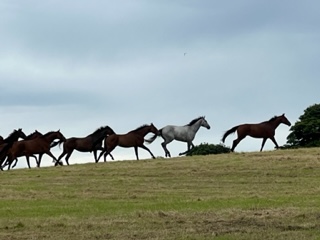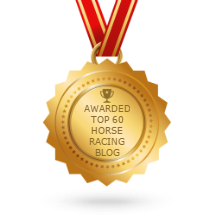Horses Smarter Than We Thought
 Are horses smarter than we thought?
Are horses smarter than we thought?The old adage "you can lead a horse to water, but you can’t make it drink" has long suggested that horses are rather dim-witted creatures. However, new research is turning this idea on its head.
Personally I have always thought of them as quite canny animals; I well remember as a child the difficulty of catching the family ponies in their paddock when they would much rather spend the day grazing peacefully than being hauled off to carry us kids to the woods on lengthy rides.
Our parents would usually buy inexpensive mounts. One of which was called Della and happened to be an ex circus pony. She would sometimes unexpectedly perform one of her old tricks and I remember being intrigued by white fleck marks on her back which, it was explained to me, were the result of the ringmaster’s whip.
 Charlotte Dujardin riding Valegro
Charlotte Dujardin riding ValegroA more recent example came to light with the controversial training regime of equestrian Charlotte Dujardin.
So I read with interest a recent study by Nottingham Trent University which has revealed that horses are far more intelligent than previously believed. These majestic animals can actually think, plan ahead, and even manipulate situations to their advantage.
Researchers put a group of horses through a series of tests involving rewards and penalties. Surprisingly, the horses quickly learned to adapt their behavior to maximize their treats while minimizing their timeouts.
The Horse and the Light
To understand how smart these horses are, researchers created a three-step game.
First, the horses learned that touching a card with their nose earned them a tasty treat. Next, a traffic light was introduced. Now, they only got a treat if they touched the card when the light was off. At first, the horses didn't pay much attention to the light and just kept trying to win treats.
The final step was to add a timeout. If the horses touched the card when the light was on, they had to wait 10 seconds before playing again. Amazingly, the horses quickly learned to only touch the card when the light was off!
This clever behavior shows that horses can think ahead and plan their actions. They're not just reacting to what's happening; they're actually figuring out the best way to get what they want.
This shows that they can understand cause and effect and make strategic decisions.
Lead researcher Louise Evans is excited about the implications of these findings. "This study challenges the way we perceive horses," she said. "By understanding their intelligence, we can improve their welfare and develop more effective training methods."
This groundbreaking research is set to be published in the journal Applied Animal Behaviour Science and presents some fascinating insights into horse cognition and behavior, with implications for how we train and care for horses in racing and equestrian sports. Let's break down the key points and discuss the notion of horses smarter than we thought:
The training of racehorses has improved immeasurably in recent years, especially the more scientific approach developed by the likes of Martin Pipe who introduced the use of frequent blood tests and wind operations. However the use of drugs such as Lasix are largely frowned upon in many countries and jurisdictions.
 Racehorse Trainer Paul Nicholls
Racehorse Trainer Paul Nicholls1. Current thinking on horse intelligence:
Current thinking on horse intelligence has evolved significantly in recent years, challenging many long-held assumptions. Recent research suggests that horses possess higher cognitive abilities than previously thought. They demonstrate problem-solving skills, memory retention, and the ability to learn through observation. Studies have shown that horses can:
- Recognize and remember human facial expressions
- Understand complex verbal and non-verbal cues
- Solve puzzles and navigate mazes
- Exhibit self-awareness (recognizing themselves in mirrors)
2. Emotional intelligence:
Horses are now recognized as having a high degree of emotional intelligence. They can:
- Read and respond to human emotions
- Form strong social bonds with both horses and humans
- Display empathy and comfort other horses or humans in distress
 Horses Running Together
Horses Running Together3. Social cognition:
Horses are highly social animals, and their intelligence is particularly evident in social contexts:
- They can remember and recognize numerous individual horses and humans
- They understand complex social hierarchies within their herds
- They engage in cooperative behavior and can work together to solve problems
4. Learning and memory:
Horses have demonstrated impressive learning and memory capabilities:
- They can learn tasks through observation (social learning)
- They exhibit long-term memory, recognizing individuals and places after long periods of separation
- They can generalize learned behaviors to new situations
For example when as children we wished to catch our ponies, they would move off to a part of the field which was in a dip where they could not be seen. Then if they spotted our approach they would gallop past us to the other end of the field.
5. Numerical abilities:
Some studies suggest that horses have basic numerical abilities:
- They can distinguish between larger and smaller quantities
- They may have a concept of "more than" and "less than"
For example the circus pony, Della I mentioned earlier, appeared able to count a set number of actions when performing her tricks.
6. Communication skills:
Horses are now understood to have sophisticated communication abilities:
- They use a variety of vocalizations, body language, and facial expressions to communicate
- They can interpret subtle human body language and cues
7. Adaptability and problem-solving:
Horses show remarkable adaptability in various environments and situations:
- They can devise creative solutions to novel problems
- They demonstrate flexibility in their thinking and behavior
8. Individual differences:
There's growing recognition of individual differences in horse intelligence:
- Some horses may excel in certain cognitive tasks while others may struggle
- Personality traits can influence a horse's problem-solving approach and learning style
9. Limitations of previous research:
Many earlier studies on horse intelligence were limited by:
- Anthropocentric testing methods not suited to equine cognition
- Failure to account for horses' natural behaviors and motivations
- Limited understanding of horses' sensory perceptions and communication methods
10. Ongoing research:
Current research is exploring more nuanced aspects of horse cognition:
- Investigation into horses' theory of mind (ability to understand others' mental states)
- Studies on horses' concept of time and ability to anticipate future events
- Research on how domestication has influenced equine cognition
Horses Smarter Than We Thought Conclusion
It's important to note that while our understanding of horse intelligence has greatly improved, there's still much to learn. The field of equine cognition is active and evolving, with new studies regularly challenging or refining our understanding.
This current thinking on horse intelligence has significant implications for horse training, welfare, and management practices across all equine disciplines, including racing and equestrian sports.
It suggests that more sophisticated, cognitively engaging training methods could be beneficial, and that we may need to reconsider some traditional approaches to horse care and interaction.
The study challenges previous assumptions about horse cognition, suggesting that horses are more intelligent and capable of planning ahead than previously thought. This has significant implications for how we approach training methods in equestrian sports and horse racing.
Back to Racing News from Horses smarter than we thought
The Popular Daily Lay Tips UK/IRE £5 per month
Subscribe Below
French Lay Racing Tips for £5 per month
Subscribe below
Your second block of text...

You Might Like These
Kentucky Derby Odds: Will there be a hometown favorite?
Preakness Stakes Odds: Will the champions face fresh challengers?
Belmont Stakes Odds: At 1½ miles, stamina becomes the great equalizer as longshots can threaten.
Breeders' Cup Odds: International talent collides with American speed, reshuffling expectations across the board.
Dubai World Cup Odds: Under desert lights, can a Japanese sensation prevail against the world's elite.
Pegasus Cup Odds: Retirement beckons for champions seeking one final payday at America's richest race.
Bet on Horses: Every wager tells a story of hope against mathematical probability.
Kentucky Derby Betting: Beneath fancy hats and mint juleps, fortunes change hands with each thundering hoof.
Preakness Stakes Betting: The middle jewel rewards those who recognize when Derby form holds true.
Belmont Stakes Betting: Distance separates champions from pretenders when the final furlong tests them all.
Breeders Cup Betting: Global racing converges for two days where value hides in plain sight.

Returns Policy: Once a customer has agreed to pay for a product or service no returns will be permitted or payments returned.
All PayPal transactions are subject to the PayPal Privacy Policy
Privacy Policy: Personal details provided to this site by an individual may be shared with third parties unless requested otherwise.
Above policies updated 15 March 2018




